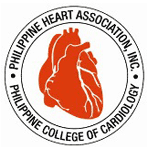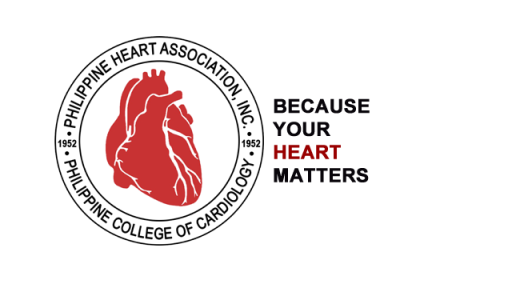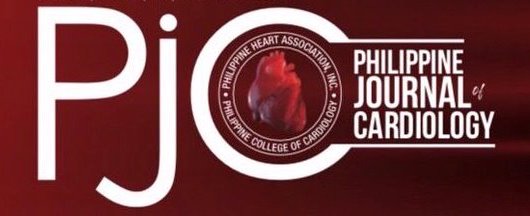

Bridging Nations, Forging Ties and Sharing Knowledge: The 2015 ESC Grand Courses
By Maria Blanca De Guzman, MD, Training Fellow, UST Section of Cardiology
Last September 23 to 24 2015, the European Society of Cardiology (ESC) and the Philippine Heart Association (PHA) jointly organized and conducted the course, “The Cardiovascular Disease Continuum in the Era of Evidence-Based Medicine”, at the EDSA Shangri-La Hotel. With shared goals of reducing the burden of cardiovascular disease and fighting inequalities and disparities of patient accessibility to modern medicine thru dissemination of scientific knowledge, the societies outlined a course that boasted of insightful and comprehensive lectures on the latest ESC Guidelines in arterial hypertension, HF (HF) and stable coronary artery disease, as well as an illustrious panel of respected speakers and facilitators in the field of cardiology, both from Europe and locally.
AIDING THE FAILING HEART
(Round Table II: HF: Methods of improving Clinical Practice)
The second session focused on the complex syndrome of HF (HF), which has become a substantial financial burden globally. Comparably, in the Philippines, HF is emerging as a notable health concern. This was highlighted by Dr. Paul Ferdinand Reganit, chair of the PHA Council on HF, as he presented the preliminary results of the PHA HF Registry Program. This program aims to describe the prevalence, demographics and clinical characteristics of HF patients in the country. This was conducted on in-patient subjects. Based on the initial data, patients were predominantly elderly male, with the majority presenting with paroxysmal nocturnal dyspnea and exertional dyspnea. Among those consulting at the emergency department and were eventually admitted, most presented with acute exacerbation, on top of chronic HF. Fifty-five percent of patients were previously diagnosed cases and ischemic heart disease was the leading cause, followed by hypertension and valvular heart disease. Cardiogenic shock remained the most common cause of demise, and prognosis, despite advancements in diagnosis and treatment, remained poor. Reviewing the patients’ medications, the underuse of statins and RAAS blocking agents was also quite notable. Dr. Reganit emphasized the need to support this program, saying that it is only in knowing and understanding our HF patients that we can fully cater to their needs and offer individualized treatment. He encouraged all the institutions to participate and to share their own patient databases, for the completion of the registry.
Dr. Athanasios Manolis, Director of the Cardiology Department of the Asklepeion Hospital in Athens, Greece, delivered his talk on beta-blocker use in HF. He pointed out that, unlike past practices in HF therapy, beta-blockers are now considered cornerstone for HF management, as supported by evidence from numerous trials. These trials demonstrated reduced morbidity and mortality, decreased hospital admissions, and improvement in quality of life with intake beta-blockers. Thus far, the best evidence of the efficacy of beta-blockade among the elderly comes from the SENIORS trial. This is a prospective placebo controlled trial on HF patients >70 years old, given nebivolol, a B1-selective blocker with NO release properties, on top of standard treatment versus placebo. Nebivolol use decreased all-cause mortality by 14% and cardiovascular hospital admissions and sudden death by 38%. There was no significant influence of age, gender, and ejection fraction on the effect of nebivolol in the primary endpoint.
Finally, Dr. Robert Hatala, a Professor of Cardiology, National Cardiovascular Institute and Slovak Medical University in Bratislava, Slovakia, lectured on simple steps to improve your practice in patients with HF. Without disregarding the fact that HF prognosis is really dismal, despite achieving optimally clinical targets with standard therapy, Dr. Hatala gave simple and practical tips, based on the 2012 ESC Guidelines, in managing HF called the “5R Program”. The 5R Program includes addressing retention of fluid, remodeling, rate control, rhythm management, and resynchronization. Developing individualized therapy using loop diuretics and appropriately balancing fluid intake and output are vital steps in addressing fluids in HF patients. Pharmacological blockade of the RAAS by ACE inhibitors (or ARBs if with intolerance to ACE inhibitors), together with a mineralocorticoid antagonist are pillars of the anti – remodeling to improve outcome in HF patients with LVEF of < 35-40%. Slowing down the heart rate to a target value < 70 beats per minute is an important mechanism to minimize energy wasting by the compromised myocardium. Beta-blockers were given class I, level of evidence A indication, while ivabradine can be added as an alternative if beta-blockers are contraindicated. Rhythm control also has impact on progression of HF. With atrial fibrillation as the most frequent arrhythmia; attempts to convert to sinus rhythm should always be considered. Amiodarone is the drug of choice for maintaining SR in HF. For patients with permanent AF, rate control with beta-blocker and/or digoxin are the therapy of choice. Finally, prevention of sudden cardiac death is of utmost importance. Implantation with ICDs and CRT in patients with prolonged QRS >150ms and LVEF of <35% is recommended.







